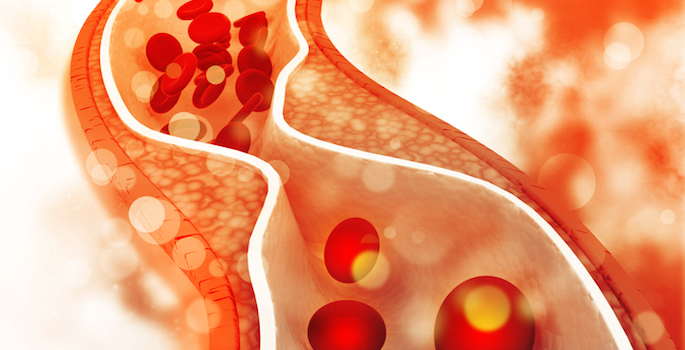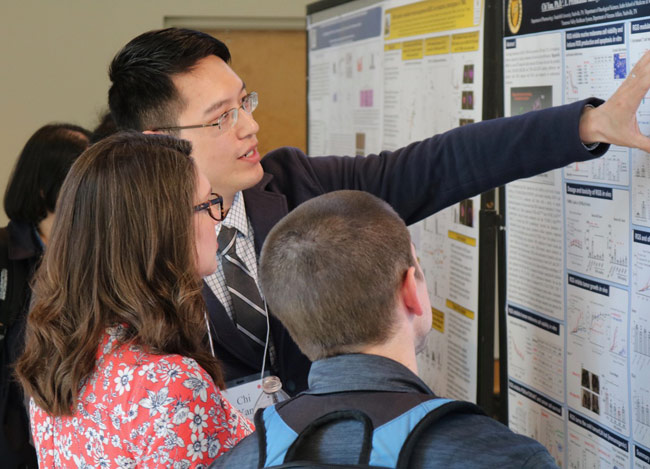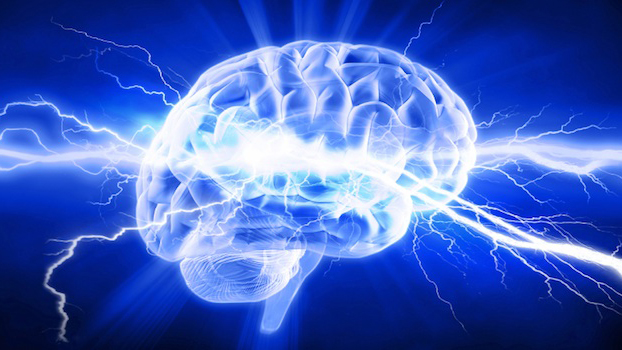Department Of Pharmacology
-

Blocking stress-induced relapse
Danny Winder and colleagues are teasing apart the actions of neurotransmitter receptors in a brain region linked to anxiety and addiction, with a goal of finding treatments for substance use disorders. Read MoreApr 8, 2020
-

A new contributor to atherosclerosis
Sean Davies and colleagues are exploring lipid aldehydes produced during oxidative stress and their contribution to HDL dysfunction and atherosclerosis. Read MoreJan 27, 2020
-

Kavalali receives Humboldt Research Award
Ege T. Kavalali, PhD, professor and acting chair of the Department of Pharmacology in the Vanderbilt University School of Medicine, has been elected a recipient of a prestigious Humboldt Research Award by the Alexander von Humboldt Foundation of Germany. Read MoreDec 31, 2019
-

Cell fate signaling
A newly identified protein interaction that affects cell cycle regulation may be an attractive target for cancer therapy. Read MoreDec 17, 2019
-

Study explores potential new class of antidepressants
Researchers at VUMC have taken a major step that could ultimately facilitate development of a new class of antidepressants which may relieve symptoms more rapidly and effectively and with fewer side effects than current medications. Read MoreNov 21, 2019
-

Team discovers one more piece to the autism puzzle
Vanderbilt investigators have linked genetic mutations in a single receptor to epilepsy, autism and intellectual disability. Read MoreOct 3, 2019
-

Guengerich, Sanders-Bush named ASPET fellows
Vanderbilt University’s F. Peter (Fred) Guengerich, PhD, and Elaine Sanders-Bush, PhD, are among 22 prominent scientists named this week to the inaugural class of fellows of the American Society for Pharmacology and Experimental Therapeutics (ASPET). Read MoreSep 20, 2019
-

A probiotic treatment for obesity?
Engineered bacteria that produce beneficial compounds — and that could potentially be administered in foods like yogurt — may be a future treatment for obesity and other chronic diseases. Read MoreAug 8, 2019
-

Defective transporter linked to autism
A first-of-its-kind mouse model may help reveal mechanistic underpinnings for the altered behaviors of autism spectrum disorder. Read MoreJul 24, 2019
-

Potassium balance and glaucoma
Vanderbilt Eye Institute researchers have discovered that an imbalance in the ionic environment of retinal ganglion cells may contribute to functional impairments in glaucoma. Read MoreJul 15, 2019
-

Yohn named Postdoc of the Year at annual symposium; Sappington named Mentor of the Year
Postdoctoral scholars Samantha Yohn and Anneke Sanders and ophthalmology professor Rebecca Sappington were honored by the Graduate School at the 13th Annual Vanderbilt Postdoctoral Association Symposium on April 9. Read MoreApr 22, 2019
-

The arrestin-GPCR connection
Vsevolod Gurevich and colleagues have discovered new insights into arrestin proteins, which turn off a cell's environmental message "inbox." Read MoreApr 12, 2019
-

Reprogramming cells for kidney repair
Lauren Woodard and Matthew Wilson have discovered a way to reprogram adult human kidney cells into cells similar to those that form during embryonic development, which could lead to new kidney disease treatments. Read MoreMar 14, 2019
-

New way to stimulate learning?
Stimulating the vagus nerve triggers certain epigenetic changes involving learning and memory. Read MoreMar 14, 2019
-

Vanderbilt scientists report new modeling of brain signaling
Heidi Hamm and colleagues have reported the first animal model of a "shut-off valve" for neurotransmitter and hormone release through SNARE complex-mediated membrane fusion. Read MoreMar 7, 2019
-

Gene identified that increases risk of antibiotic reaction
Researchers at Vanderbilt University Medical Center and colleagues have identified a gene that increases the risk for a severe and potentially life-threatening reaction to the commonly prescribed antibiotic vancomycin. Read MoreFeb 28, 2019
-

Modulating stress circuits
Danny Winder and colleagues have demonstrated how norepinephrine and a stress factor call CRF interact, which may lead to new treatments for stress-related disorders. Read MoreFeb 15, 2019
-

Reversing stress-related anxiety
Inhibiting COX-2 — an enzyme associated with inflammation — could provide a novel therapeutic approach for stress-related psychiatric disorders. Read MoreFeb 14, 2019
-

Lindsley named fellow of National Academy of Inventors
Craig Lindsley, co-director of the Vanderbilt Center for Neuroscience Drug Discovery, has been named a fellow of the National Academy of Inventors. Read MoreJan 4, 2019
-

Cytokine-cognition connection
Erin Calipari and colleagues have shown that peripheral administration of a neuroprotective cytokine may improve dopamine signaling problems associated with certain psychiatric disorders. Read MoreOct 4, 2018